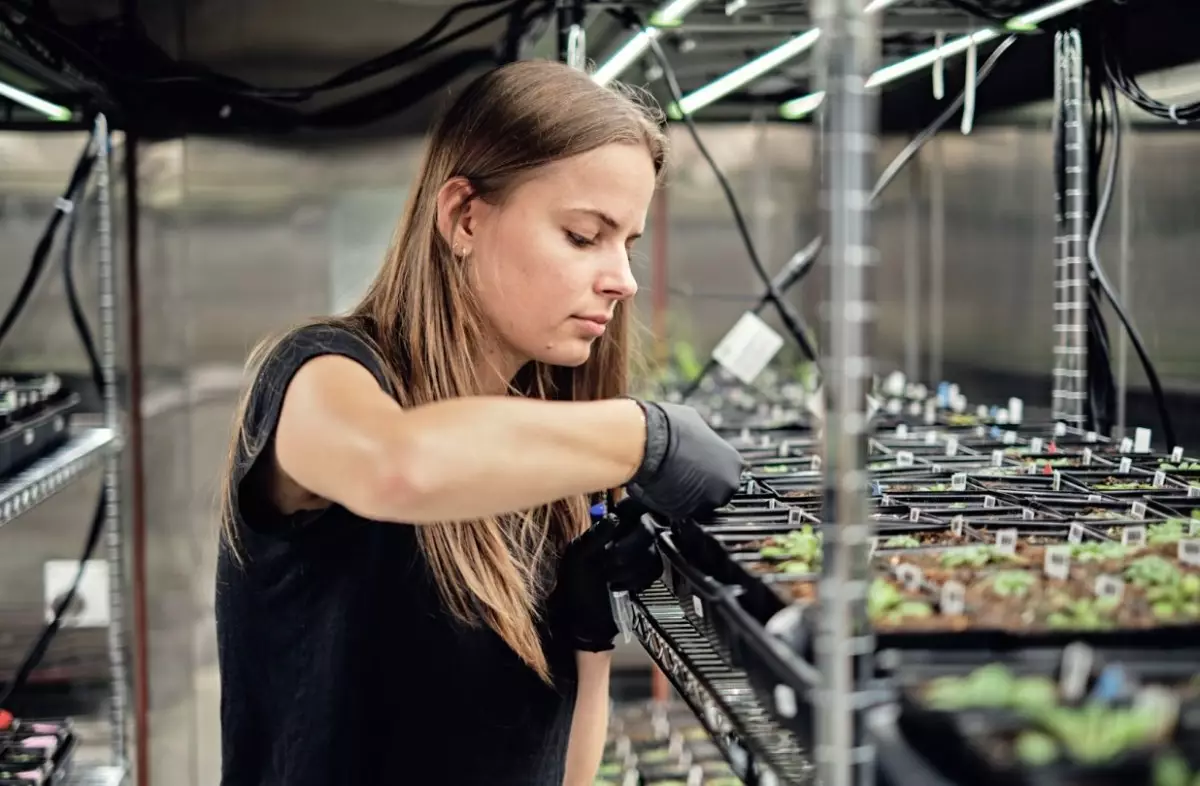As the world grapples with climate change and food security challenges, innovative solutions are critical to transforming traditional agriculture. Heritable Agriculture, a startup emerging from Google’s research arm, X, epitomizes the potential for advanced technology to reshape how we cultivate crops. This new venture leverages the power of data analytics and machine learning, promising to enhance agricultural productivity while simultaneously addressing some of the planet’s pressing ecological issues.
Originally, plants have been heralded as remarkable entities, efficiently converting sunlight into energy and playing a crucial role in carbon sequestration. In her announcement, Heritable Agriculture emphasized these characteristics, viewing plants as ‘solar-powered, carbon-negative, self-assembling machines.’ However, this positive view is contrasted by the stark reality that agriculture contributes significantly to environmental degradation. Responsible for around 25% of global greenhouse gas emissions, agriculture also consumes vast amounts of groundwater, leading to alarming levels of soil erosion and water pollution due to chemical runoff from fertilizers and pesticides.
This juxtaposition presents an opportunity for Heritable Agriculture to innovate agricultural practices. Data-driven approaches can provide vital insights into optimizing crop performance, a necessity in a field that has seen little transformative change over centuries. While the collection of data might be simpler than in previous eras, the real challenge for Heritable lies in translating this data into pragmatic farming strategies conducive to modern agricultural practices.
Heritable’s foundation rests on the vision of its founder, Brad Zamft, who emphasizes the importance of bridging traditional breeding methods with advanced technology. Zamft, with a remarkable background in physics and experience at high-profile institutions like the Bill & Melinda Gates Foundation and TL Biolabs, underscores a critical understanding that effective crop optimization does not inherently require genetic modification. Instead, the company’s initial focus is on refining conventional breeding techniques—essentially optimizing crossbreeding of plants to enhance yield while conserving essential resources.
At the core of Heritable Agriculture’s operations is machine learning, a facet that distinguishes it in the field of agricultural innovation. This technology enables Heritable to analyze vast plant genomes to identify potential genetic combinations that promise higher yields while minimizing water usage and increasing carbon capture abilities. Such advancements are imperative for addressing the looming challenges posed by climate change and population growth.
Heritable’s research extends beyond theoretical frameworks. Practical experimentation is a vital component of their methodology, involving thousands of plants cultivated in controlled environments to derive the most data-driven insights. By conducting trials in various locations, including California, Nebraska, and Wisconsin, the startup can refine its approaches, ensuring the technology aligns with diverse agricultural dynamics present across different regions.
Despite Heritable’s promising foundation, it faces a lengthy journey ahead. Zamft has shared that the immediate focus remains on commercializing their technology rather than delving into genetic engineering. While gene editing using tools like CRISPR might contribute to their strategy in the future, they currently prioritize conventional breeding techniques. This reflects a broader industry sentiment that values consumer safety and ecological harmony over untested genetic modifications.
Interestingly, Heritable has successfully attracted funding to support its initiatives, with investment from entities such as FTW Ventures and Mythos Ventures, alongside backing from Google itself. This financial foundation might help expedite the commercialization of their technology, paving the way for broader adoption in agricultural practices.
Heritable Agriculture’s mission resonates in an era where technology must align with sustainability. By focusing on optimizing traditional agricultural practices through data-driven methodologies, Heritable represents hope for sustainable agriculture that can balance food production needs with environmental stewardship. As they navigate the complexities of scaling their solutions, the agricultural community will be watching closely, anticipating potential breakthroughs that could redefine farming’s future.

